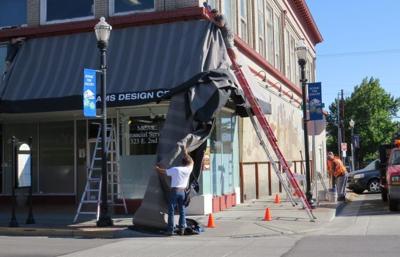Mid-Columbia Medical Center has created a hub for financial services and joined a movement to make hospital pricing readily available for most common inpatient and outpatient services.
The website www.oregon
hospitalguide.org compares MCMC’s costs to the state average and some surgical procedures ring in higher but many others are lower.
For example, a breast biopsy averages $2,426 across the state but costs $1,693 at MCMC. In the area of women’s health, mammograms are also slightly less expensive — $233 versus $277 — and delivery of babies much lower, a fee of $3,324 in comparison with $5,180 at other hospitals.
“I think people will find it’s an urban myth that we’re more expensive across the board just because we are an independent hospital,” said Don Arbon, MCMC’s chief financial officer.
Similar data exists on the site for general procedures. Hip replacements are $21,467 when the state average is $30,772 and gall bladder removal $7,168 in comparison to $9,029.
There are areas where MCMC is higher, such as hernia repair, which is calculated at $10,432 when the average is $6,315. Liver scans are slightly higher at $1,264 to $1,069 and a bone scan is $1,540, up from the $772 average.
“We aren’t going to be lower on everything but I think that people will be able to see that we are competitive,” said Arbon.
He said is it good to see that MCMC’s work to hold down prices has paid off, especially when many contract medical professionals require the same wages paid in Portland at much bigger facilities, which increases operating costs.
In addition to price differentials, the website launched by the Oregon Association of Hospitals and Health Systems provides information on the average length of stay at the chosen hospital.
Potential patients can also find out about the occupancy rate, surgery mix and employee levels, as well as data about operational margins.
“There was buy-in from all hospitals on this program — we helped set the standards,” said Arbon.
People wanting surgery estimates can also call MCMC’s financial office at 541-296-7504. An interpreter is available to help with Spanish clients as needed.
Arbon said MCMC recently made it easier for clients to deal with financial matters by consolidating 50 staffers from various finance and patient account offices in newly renovated space at 323 East Second Street in
downtown The Dalles.
MCMC occupies the entire 8,000 square-foot top floor of the Craig Development building and about half of the downstairs space.
The balance of the lower floor is being used by Adams Design Center.
“This consolidation allows people to call or visit one location to complete their healthcare billing process,” said Arbon.
The facility opened for business in May following an extensive restoration of the historic structure.
Rep. John Huffman, R-The Dalles, was involved with the effort to get “good faith” estimates made readily available to medical clients of MCMC and other hospitals.
He supported Senate Bill 900 in the 2015 session that set out requirements for giving the public access to health care price data.
Information has since been compiled by the Oregon Health Authority and disseminated through the association of hospitals.
“With all of the health care transformation that has gone on in recent years, I think there has been a growing demand for transparency and that’s where SB 900 came from,” said Huffman.
“People not only want to know where government money is going but what they will be paying out of pocket.”
Arbon said MCMC and other hospitals have three days to respond to the request for an estimate, although staffers can provide information much quicker in uncomplicated cases. He said, in addition to giving out basic prices, people are also briefed about associated costs, such as the expense of anesthesia and radiology.
Arbon said the more information potential patients provide when they call for a price estimate, the easier it will be to calculate potential costs. For that reason, he urges people to find out how much their insurance will pay for a procedure, what the co-pay will be — as well as what their ability to pay will be — prior to making the call to his office.
“Each plan is unique so it’s always beneficial to have all of the available information,” he said.
Financial assistance information can be found on MCMC’s website at www.mcmc.net. During committee meetings to craft rules for implementation of SB 900, Huffman said a “secret shopper” made random calls to hospitals to test how well they were complying with the new standards.
MCMC scored nearly perfect, omitting only the availability of financial assistance.
Arbon said that oversight was made because the caller identified herself as an insured patient and did not request to know what financial assistance was available, so it was likely assumed that data wasn’t needed.






















Commented
Sorry, there are no recent results for popular commented articles.